National
Leaders call for renewed focus on social justice and accountability to strengthen democracy
Speakers underscored the role of media in strengthening democracy.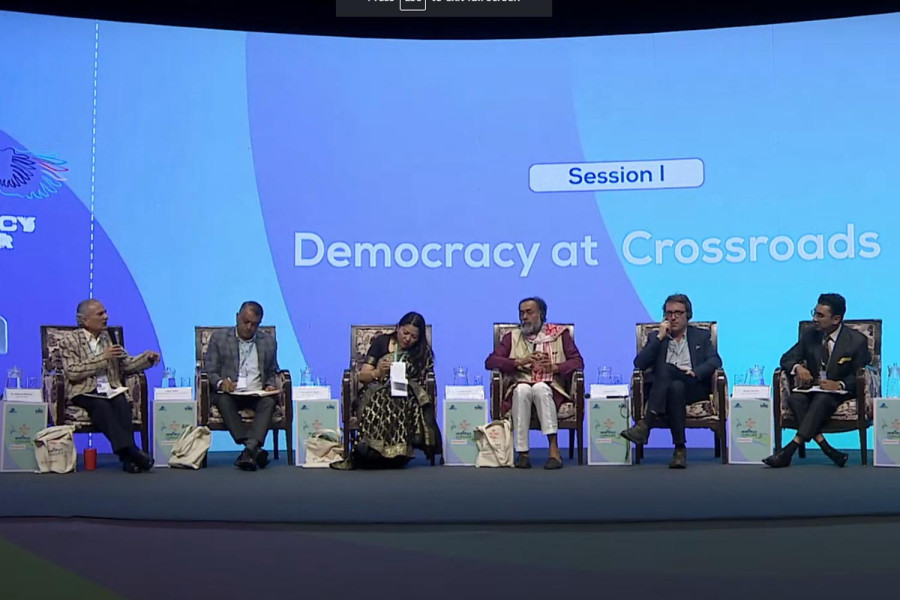
Post Report
Leaders on Wednesday highlighted the need for social justice, transparency, and the role of democratic institutions to strengthen democracy.
Speaking at the first session, ‘Democracy at Crossroads’, at the Kantipur Conclave, former minister and CPN (Unified Socialist) leader Ram Kumari Jhakri said Nepal must strive for a democracy rooted in social justice.
Jhakri criticised conventional approaches to democracy, while advocating for a model that addresses economic inequality and embraces social justice with democratic governance.
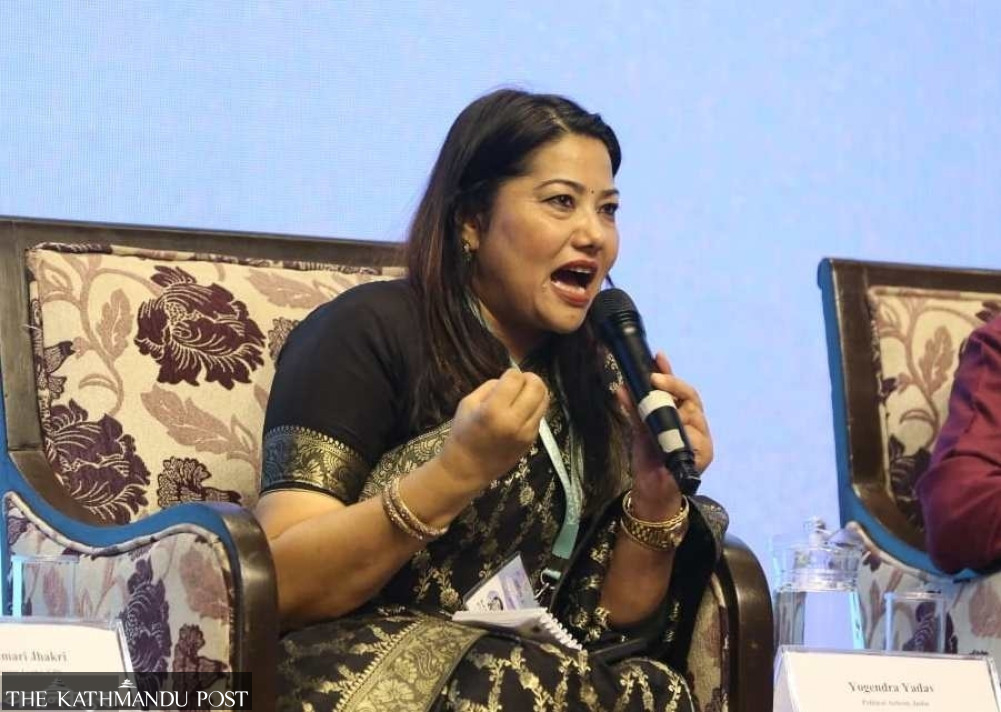
She said that democracy should be a system of governance and a societal and economic structure that promotes equity.
Former prime minister Baburam Bhattarai said that Nepal’s democracy is at a critical juncture. He described democracy as a system that continuously evolves, overcoming challenges and offering opportunities for progress.
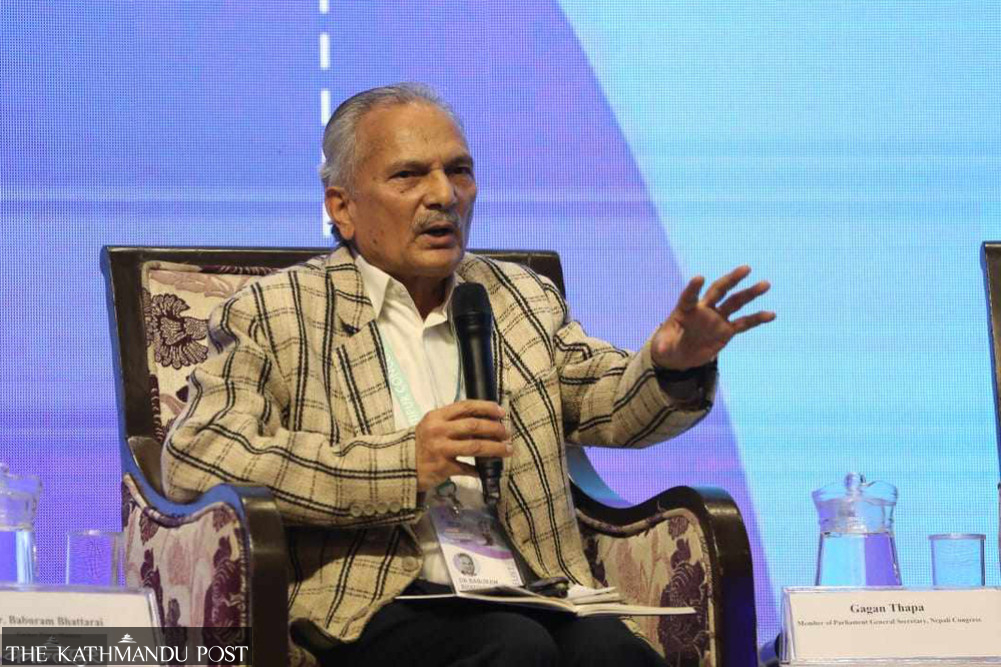
“Democracy is at a turning point; while global trends may seem to pull it downhill, I believe we can steer it upward.” He attributed Nepal’s delayed democratic development to deeply rooted political constraints and asserted that democracy in Nepal, though progressing, requires vigilance and adaptation.
Political activist Yogendra Yadav of India highlighted the media’s role in democracy, stating that failing media institutions threaten democratic integrity.
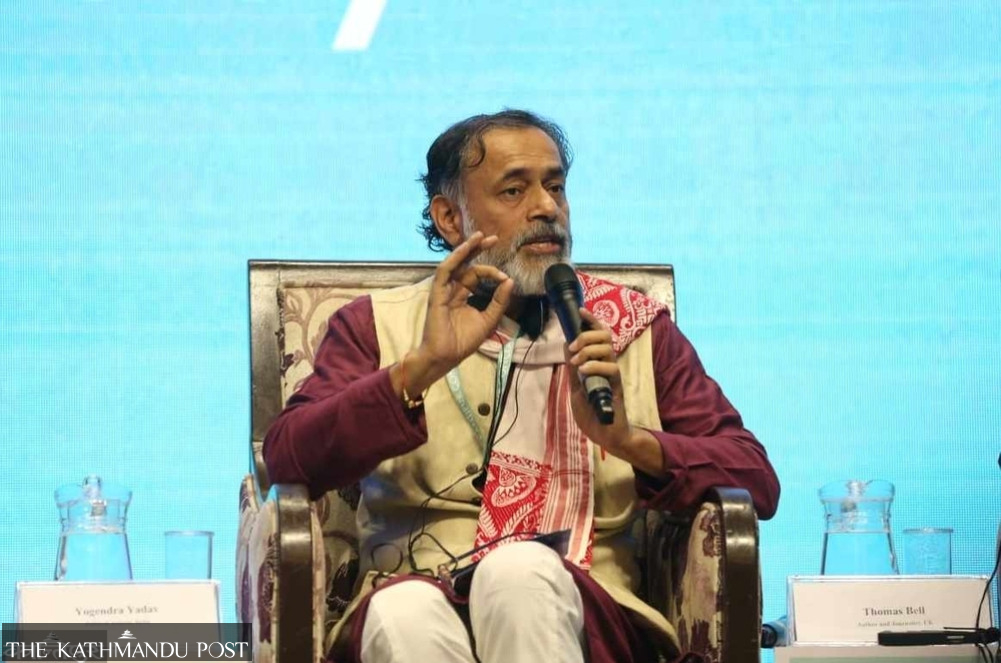
He emphasised that while the media should hold governments accountable, its influence in India had sometimes compromised democratic values. However, he noted that Nepal’s media environment remained more supportive of democratic ideals.
Nepali Congress General Secretary Gagan Thapa expressed a need for political accountability, urging leaders to acknowledge their role in bringing democracy to a crossroads. He said, “If top leaders like Sher Bahadur Deuba [chief of Nepali Congress], KP Sharma Oli [CPN-UML chair], and Pushpa Kamal Dahal [CPN (Maoist Centre) chief] don’t take accountability for the failures, I will take responsibility. We, the political parties, have brought democracy here, and we are the ones who must correct the path.”
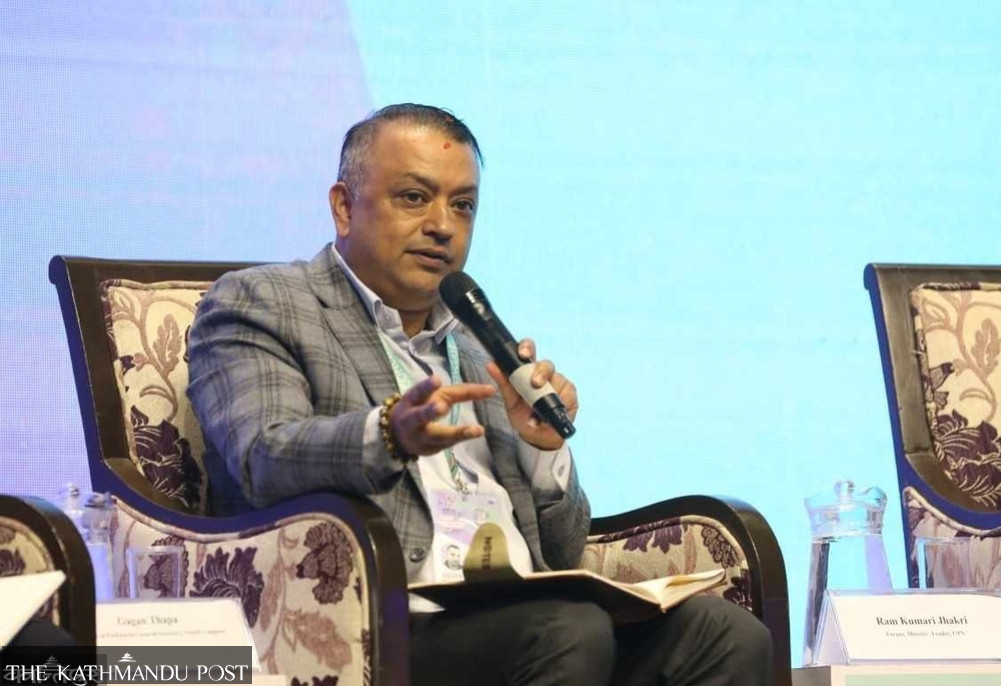
Thapa further criticised politically motivated appointments in public institutions, calling for leaders to prioritise their responsibilities over personal agendas. He argued that Nepal’s democracy remains functional, with regular elections and peaceful transitions of power, and suggested that leaders focus on national development and the democratic process.
Also speaking, author and journalist Thomas Bell of the United Kingdom said Western nations, such as the UK and the US, are exploiting immigration issues for political gain, using it to gather votes in elections.
He noted that if lies and exaggerations persist in democracies, democratic institutions will become increasingly fragile.
Bell said broad consensus among leaders is essential for the stability of constitutional democracy. He said that since the 2008 economic recession, immigration has become a central topic of debate, especially in countries like the US and the UK.
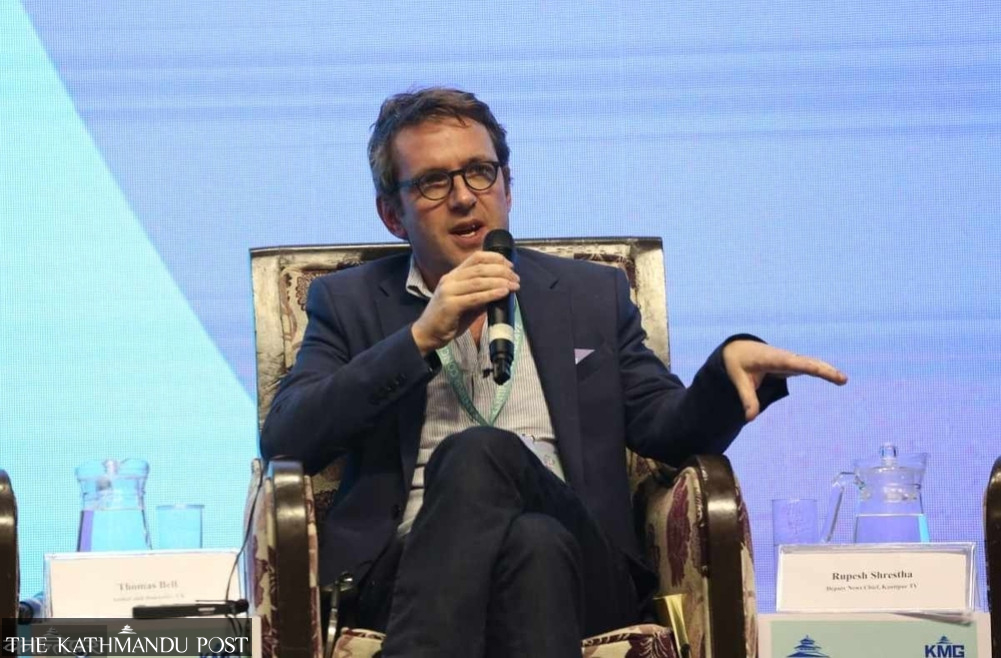
“Leaders stand divided on immigration policies. Some argue immigrants are necessary to strengthen the economy. In contrast, others link immigration to refugee issues, portraying it as a complex problem,” said Bell, adding, “Right-wing groups have long criticised immigration to garner votes.”
The two-day conclave, taking place on Wednesday and Thursday, will feature discussions on national and international topics. This year’s main theme is “Democracy in Dilemma,” marking the fourth edition of the Kantipur Conclave.




 9.7°C Kathmandu
9.7°C Kathmandu













